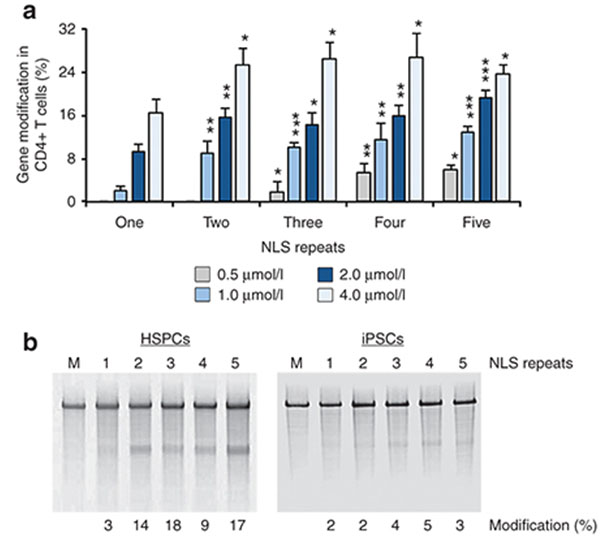Research Associate Professor Jia Liu from the Laboratory of ADC Chemistry recently published a paper in collaboration with the Scripps Research Institute. This paper, entitled “Improved Cell-Penetrating Zinc-Finger Nuclease Proteins for Precision Genome Engineering”, was published in a Nature Press journal Molecular Therapy- Nucleic Acids (doi:10.1038/mtna.2015.6).
Safe, efficient, and broadly applicable methods for delivering site-specific nucleases into cells are needed in order for targeted genome editing to reach its full potential for basic research and medicine. It was previously reported that zinc-finger nuclease (ZFN) proteins have the innate capacity to cross cell membranes and induce genome modification via their direct application to human cells. In this new study, Liu et al show that incorporation of tandem nuclear localization signal (NLS) repeats into the ZFN protein backbone enhances cell permeability nearly 13-fold and that single administration of multi-NLS ZFN proteins leads to genome modification rates of up to 26% in CD4+ T cells and 17% in CD34+ hematopoietic stem/progenitor cells. In addition, it was demonstrated that multi-NLS ZFN proteins attenuate off-target effects and that codelivery of ZFN protein pairs facilitates dual gene modification frequencies of 20�30% in CD4+ T cells. These results illustrate the applicability of ZFN protein delivery for precision genome engineering.
“This shows that protein delivery of site-specific nucleases can be even more efficient than conventional gene delivery technique such as nucleofection. We envision that ZFN as well as other nuclease proteins can be developed as safe, efficient therapeutic agents for the gene therapy of human diseases such as HIV infection.” Jia Liu said.



